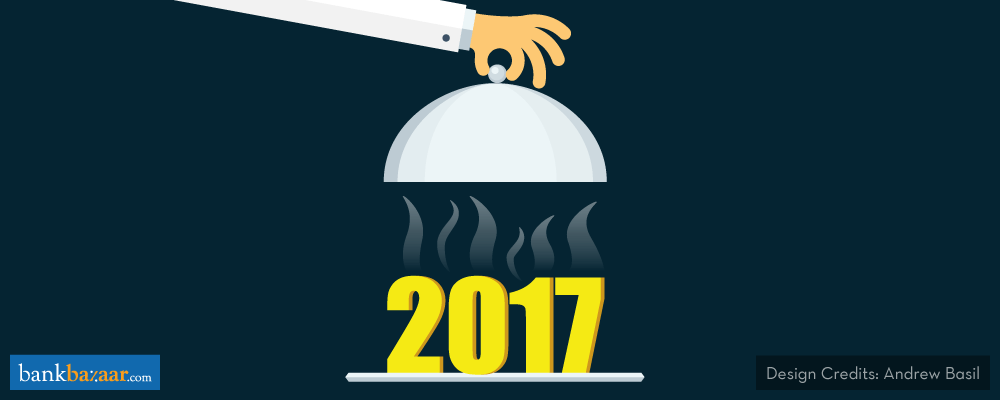
A fresh new year comes with a chance to redeem all the mistakes made in the previous year and make a fresh start. From paying off debts on time to picking the right investment products, New Year resolutions are a good start to bringing your finances in line.
About half of the resolution setters in 2016 achieved 80% of their financial goals, according to a survey conducted by Fidelity Investments. So, if you haven’t chalked them down yet, here are some money matters you need to attend to straight off the bat.
Reduce Debts
First things first, free yourself from the burden of debt at the earliest. Whether you have taken a loan from a friend or a financial institution, explore repayment options to make getting out of debt easier. For example, if you have a Home Loan, right now is a great time to refinance your loan and move to a lower rate loan product, which could help you save lakhs of rupees in the long term.
Not only that, you should aim to prepay as much as you can while the rates are low since this would help you reduce your loan balance quickly. Consider prepaying by using your holiday bonus or bonus pay before you look at any wealth-building options. Ultimately, paying off your debts on time – or before time – is great for your Credit Score, and this will help you get loans at cheaper interest rates in the future. Paying off your debts also frees up your income for greater savings and investments. And you can also save yourself from going into a debt spiral.
Additional Reading: Why Your Home Loan EMI Is Still High
Build That Emergency Fund
Other than having regular Savings Accounts and investments in place, it’s important to have a contingency fund in place to protect you from any unforeseen financial difficulties such as job loss or health issues. It’s the first line of defence to ensure that your bills are paid on time and there’s no delay in loan repayment. In order to create the fund, you can either cut down on spending or stash money in the fund every time there’s a surplus. Ideally, a fund worth six to eight months of your expense is recommended. You can build this fund using Recurring Deposit, liquid Mutual Funds, Fixed Deposits or a Savings Account – essentially any instrument that is safe and liquid.
Set Some Goals
While you might have an exhaustive list of things that you want to acquire, remember your resources are limited and you have to allocate funds in an organised fashion to have all that you wish for. Identify your goals first and categorise them into short, medium, and long-term ones to set your priorities right and have sufficient funds in place at the time of the requirements. While you can look at short-term investment instruments such as short-term Fixed Deposits or Recurring Deposits to meet goals such as buying a vehicle or going on an exotic holiday, you can look at long-term investment options such as real estate, Mutual Funds and PPFs for long-term goals such as children’s education and life after retirement. It’s only when you have a goal that you set out to achieve it.
Insure And Invest, Separately
If you were thinking you could kill two birds with one stone by investing in insurance, you aren’t making the most of what you’ve got. You need to treat the two separately to enjoy higher returns on investment as well as risk coverage for your dependents. Investment in a typical endowment plan limits your wealth-building capacity in the long-term while also limiting the life cover your dependents would need in case of your untimely death. The best way to get tax benefits while earning high returns is to insure yourself through a term plan and invest in a tax-saving instrument with high returns such as ELSS, PPF, etc. Also, always have medical insurance to meet the expenses in case of a medical emergency.
Go Online For Financial Products
India is going cashless. Right from buying groceries to buying insurance, there are online platforms for you to compare and buy things easily from the comfort of your couch. This year, give online aggregators a chance when you want to buy a financial product such as a Home Loan or a Life Insurance policy. Going to an aggregator allows you to control the levers of your product search, letting you make an informed decision about what product you want to buy. This way you avoid being sold a product that is not right for you. Also, you are saved the hassle of paperwork and running to the branch office of your financial institutional. You can complete your purchases online. So go online, and help everyone around you learn how to go online, not just for financial products but also for their daily needs.
If you implement these suggestions, you may find yourself in a financially stronger position by the end of the year. With your financial strength will come the achievement of your life goals. Getting there won’t be easy but why don’t you take it one step at a time?